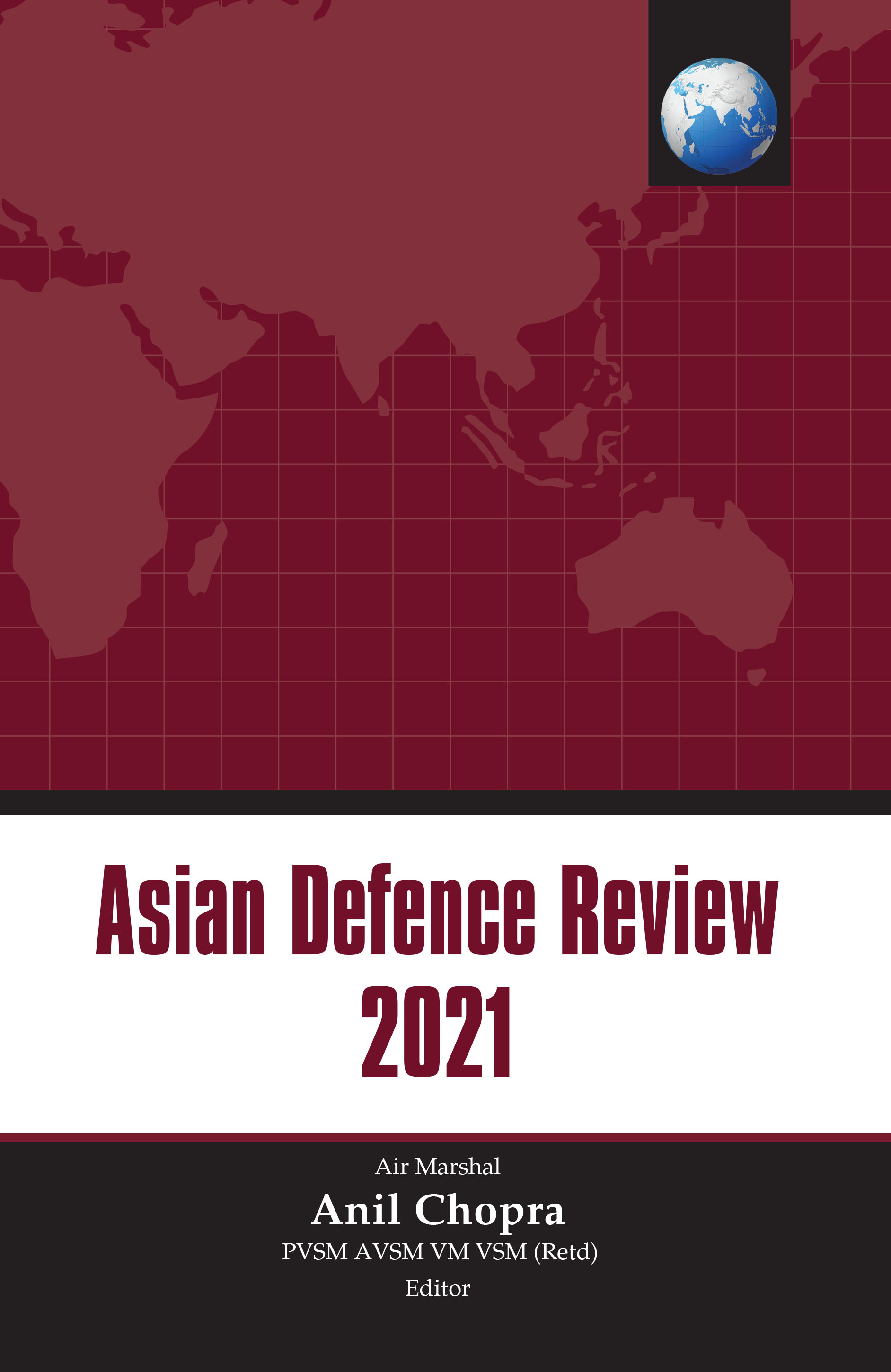Subjects
Asian Defence Review 2021
Editor: Air Marshal Anil Chopra
India began 2021 with Chinese troops still holding tactically important positions at the Line of Actual Control (LAC), and despite eleven rounds of talks, deescalation has not taken place significantly. More recently the very lethal second wave of COVID-19 hit India taking a massive toll of human lives. Globally, USA saw election of Joe Biden, a Democrat, after a very hotly contested polarised election. After 100 days of his Presidency, USA continues to progress most foreign policy issues with a hardline approach towards China. Biden meanwhile has decided to take forward his predecessor’s decision to pullout of Afghanistan. USA clearly sees China as a competitor and challenger. China and the US are decoupling, disrupting bilateral flows of technology (semiconductors, cloud computing and 5G), talent, and investment. The 21st century is getting set for geostrategic play in Asia-pacific region. Biden is more open to participate and accept climate change challenges.
With action shifting to the Indo-Pacific, Europe is having to take its calls and alignments. The Quadrilateral Security Dialogue (QUAD) is engaging in greater interaction, but each partner is still taking individual calls on the extent of the alliance. Meanwhile, many South East Asian countries that have been directly affected by China’s unilateral actions of usurping a large part of the South China Sea have become possible contenders to join QUAD-Plus. Some European powers, like France, also want to be part of the action in the area.
China meanwhile continues to push its flag-ship Belt and Road Initiative (BRI) for strategic expansion and influence. China has also been making threatening postures towards Taiwan, which many feels is a prelude to a possible invasion and forceful unification. But, Taiwan remains firm and with a resolve to defend and remain independent. As China makes massive investment offers to Iran, USA is using backdoor diplomacy to keep channels to Tehran open.
The European Union is finding its feet in the changing global environment, and trying to defend itself more aggressively against competing economic and political models. Europe is still not closing all doors towards China. Turkey’s President Erdogan, was for long displaying provocative behaviour, and acting as a leader of the Islamic world. Ankara’s relations with the US have hit new lows, and US sanctions are affecting the country as an investment destination.
Despite general global economic slow-down and Covid, Asian economies will recover faster than those in the West. Donald Trump’s “America first” has not worked. Extended US sanctions against Russia, have pushed Moscow, much to its dislike, closer to Beijing. A positive trend is the stability and improved relations among long-standing rivals in West Asia.
Meanwhile India continues to push for “Aatmanirbhar Bharat” and driving indigenous defence production. Many of these subjects have been covered in this issue of the Asian Defence Review.


 Political Science
Political Science
